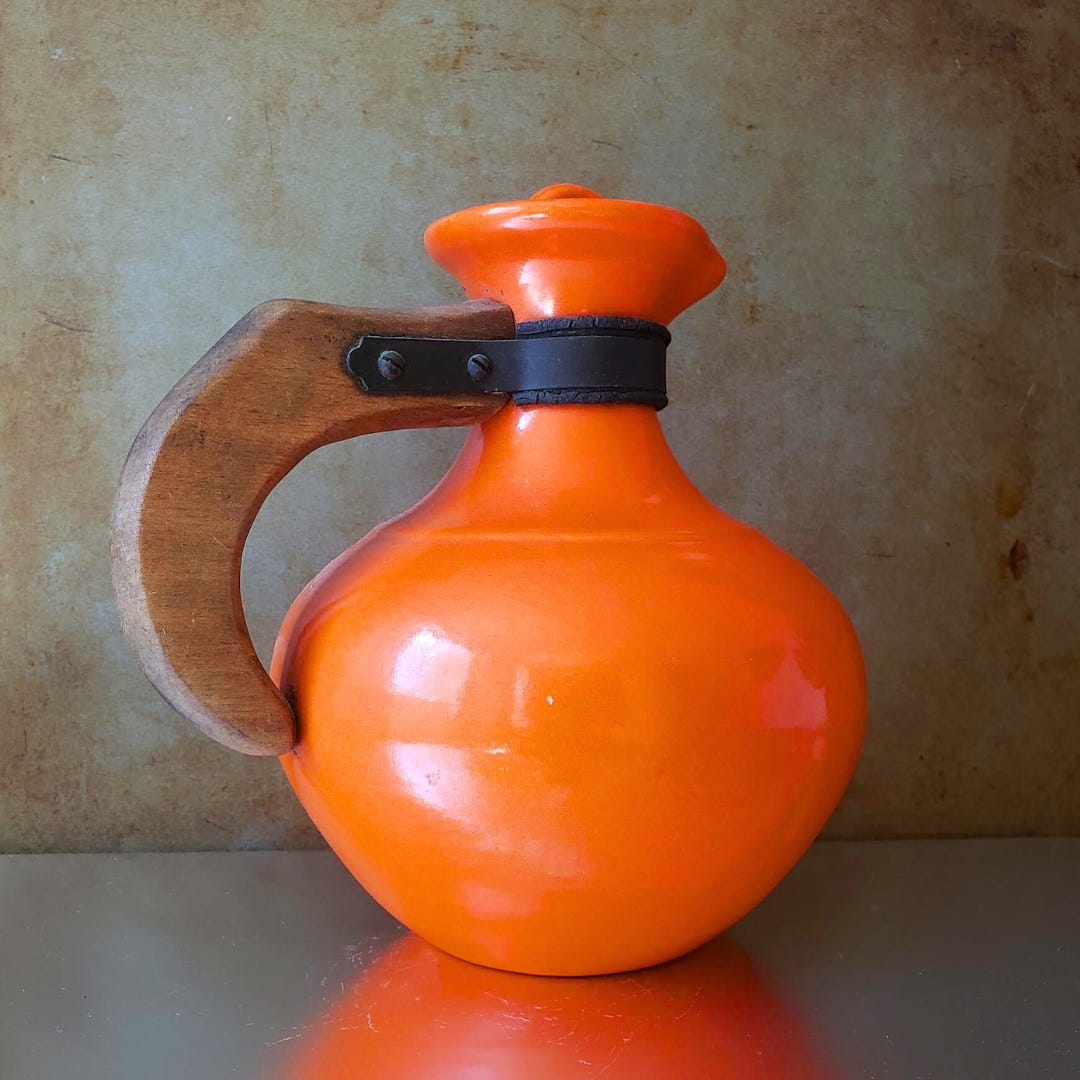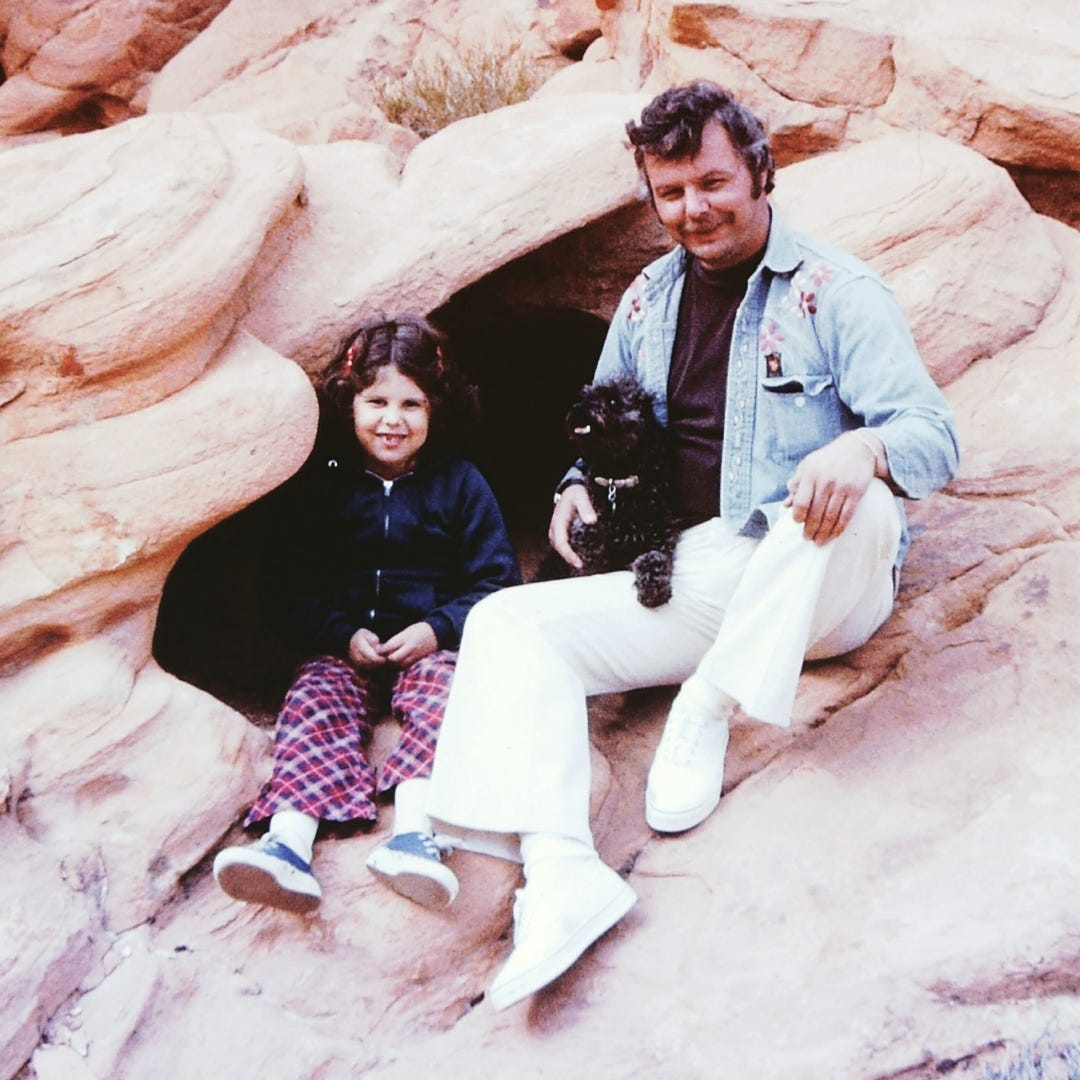THE HOT JUG
“He spent his days scouring thrift stores and garage sales for treasures he’d clean up and resell.”
My dad was a bartender in restaurants around southeast L.A., work that took him away most nights of my early childhood. When he was home, my mom and I treated him like a celebrity.
They’d met on a dance floor. They both loved MGM musicals and knew everything about old Hollywood; in the pre-Alexa 1970s, they were the people people called for answers to trivia questions about movie stars. In my eyes, Dad was one of those stars, frequently bursting into song or doing a little soft-shoe. He favored white pants and loafers and loved going on weekend drives. I don’t think I’ve ever felt as safe as when I was small and falling asleep across the backseat of our Ford LTD, Dad singing along to John Denver or Glen Campbell.
Over time, serving drinks for a living became increasingly problematic. Smoky bars were bad for a guy who’d suffered from acute childhood asthma, and worse for someone struggling with sobriety, as Dad was by the time I was a teenager. Wanting to find work that was less taxing on his body, but restless and easily bored, he tried his hand at a variety of other jobs. The one that stuck best was thrift picker and reseller. He spent his days scouring thrift stores and garage sales for treasures he’d clean up and resell. Midcentury ceramics became his specialty, especially pieces produced in California.
The interest in thrifting took off when I was in high school, so along with honors English and U.S. history, I also learned the names of ceramics companies like Catalina, Bauer, McCoy. I got used to vases and figurines coming and going. They’d live in our house for a month or two, then suddenly be wrapped in sheets of The L.A. Times and carted away to a flea market. This was in keeping with the patterns of our household—Dad sometimes felt just as transient. He might disappear for a night or a month without our knowing his whereabouts, returning without explanation or apology.
I grew up and away and made a stable home with my husband. After our second child was born, Dad’s fragile health began failing in earnest; he died shortly after his sixty-fourth birthday. As my mom began the slow task of sorting through and donating most of his vintage pieces, I claimed several, including this squat water jug produced by the Gladding McBean company. With its wood handle and bright orange glaze, it looked right at home in my dining hutch.
Dad didn’t live long enough to truly know my children’s personalities. But he’d have been proud to read my daughter’s college-application essay, which traced her interest in nuclear science to discovering, via her Geiger counter, that my orange jug is hot—hot, or at least spicy, as the lingo for radioactive objects goes. It turns out that several midcentury pottery companies, including Gladding McBean, used uranium oxide powder to create their distinctive red-orange glaze.
The jug’s radiation levels aren’t dangerous, and I still display it, part of a collection that includes retro barware and cocktail glasses. The pieces evoke a complicated nostalgia along with the best memories of Dad: the bartender, thrifter, drinker and dreamer I love so very much, whether he’s here with me or not.
—Kelly Shire
Kelly Shire’s writing has appeared in Palm Springs Noir, Brevity, Catamaran and elsewhere. A school librarian by day, she’s completing a memoir about music, road trips and her California family.
For a different reading experience, The Keepthings’ stories can also be read in their entirety on Instagram @TheKeepthings.
Have a story to share? See the complete submission guidelines, including photo guidelines, at TheKeepthings.com.






Love the dad love.... :-)
Interesting twist about the origin of the vase! You really made your dad come alive too. Thank you for sharing your story.